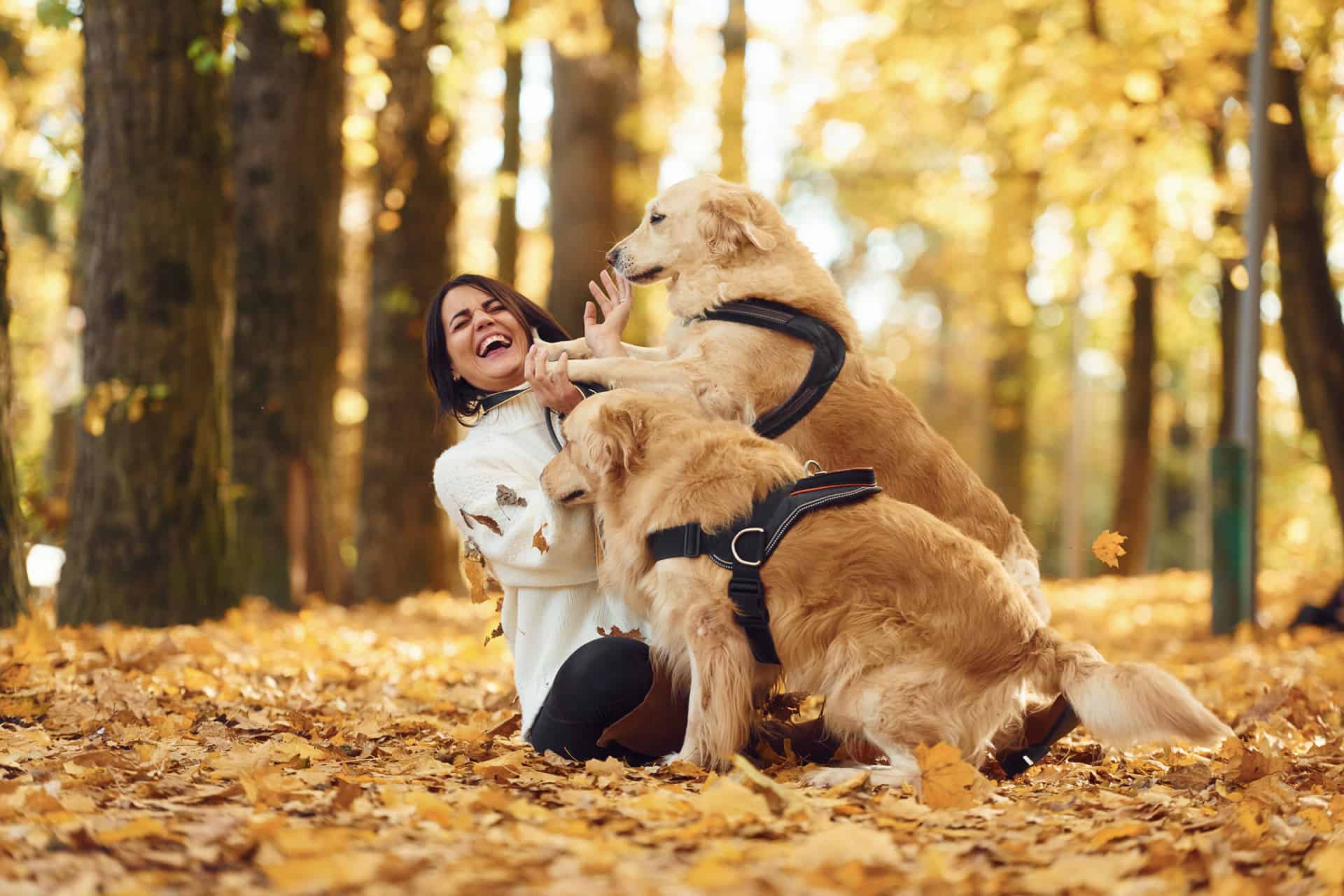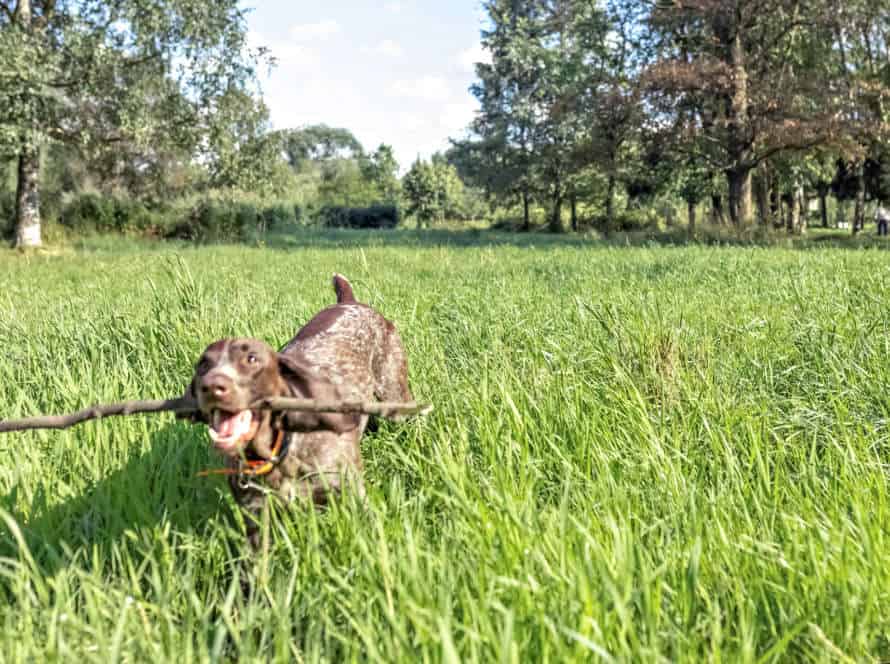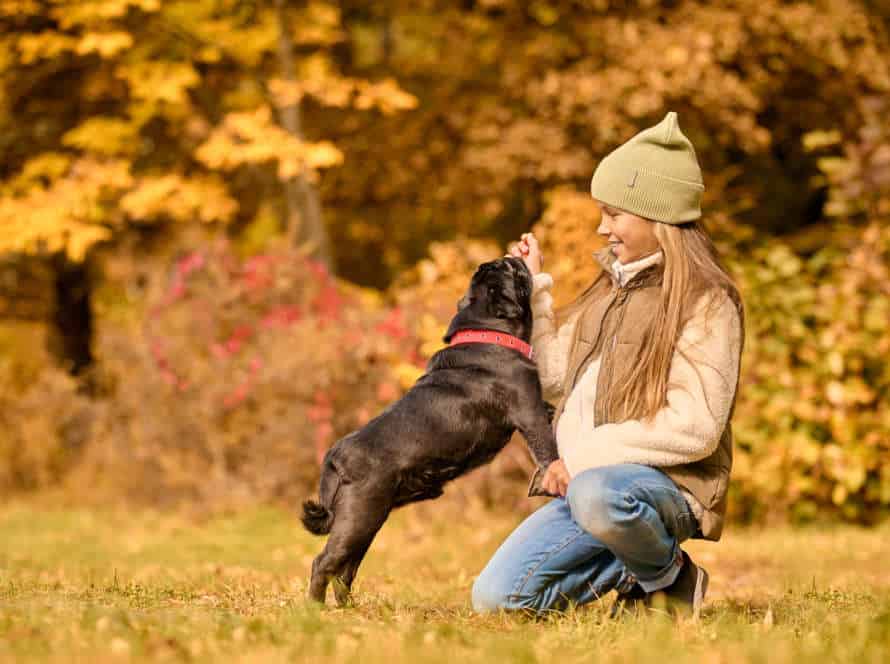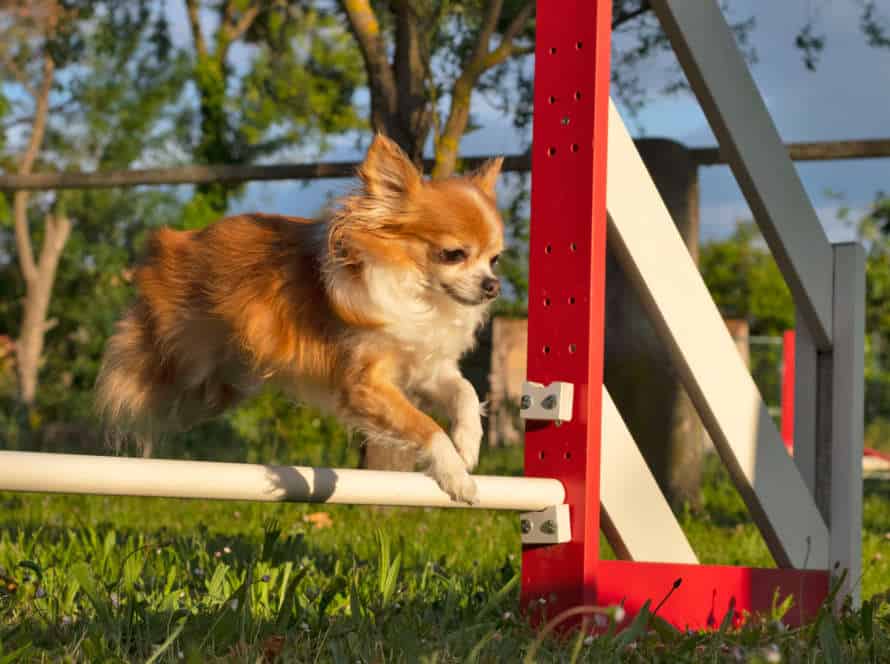The Importance of Play for Dogs
Playing is a must for doggy’s life! Not only does it give them mental stimulation, but physical exercise and socialization too. It’s an awesome way for pet owners to connect with their fur babies. Here in this article, let’s discover how important play is for dogs and the different types of play activities and the advantages they offer.
Physical Benefits of Play for Dogs
Playing with your pup is more than just fun – it has physical benefits! Here are some:
- Regular physical activity through play helps keep your pup at a healthy weight and prevents obesity-related illnesses.
- Fetch or tug-of-war makes muscles stronger, increases endurance, and heightens agility and coordination.
- Jumping and running improves cardiovascular health and strengthens bones.
- Interactive toys that involve hiding treats help your pup’s problem-solving skills and cognitive development.
- Other physical benefits of play include better sleep, improved digestion, and enhanced immunity.
Safety is key – choose safe toys and supervise playtime. Plus, it’s an awesome bonding opportunity! Let the games begin!
Mental Benefits of Play for Dogs
Playtime is so important for doggos’ mental and physical health. Here’s why it’s great:
- It relieves stress and anxiety; playtime lets your pupper release tension.
- It makes them sociable; regular play helps them get along with other pups and humans.
- It boosts their brainpower; they’ll be better at problem-solving, memory, and more.
- It makes them confident; they explore and take positive risks.
- It reduces aggression; they channel their energy into happy interactions.
Remember: Playtime is key for your pup’s wellbeing, and it strengthens the bond between you two.
Socialization Benefits of Play for Dogs
Play is essential for the socialization and general well-being of dogs.
It gives them an opportunity to communicate with other dogs or humans and gain vital social skills.
Benefits of play for dogs include:
- Physical exercise for health and cheer.
- Mental stimulation to avoid boredom and bad habits.
- Teaching dogs social cues and behaviours such as bite restraint, sharing, and taking turns.
- Enhancing the bond between owners and their pets.
It is important to make sure play is secure and monitored. Owners must also choose the correct type of play for their dogs to guarantee that it meets their needs and disposition. Play can be a fun way for owners to associate with their dogs and better their relationship.
Health Benefits for Owners
Playtime isn’t just for fun – it’s great for everyone! Playing together has many health benefits for both dogs and owners. It strengthens the bond between them and boosts mental health. Plus, it has physical advantages too! Let’s have a look at these advantages in more detail.
Improves the Human-Animal Bond
Play with your pup daily for their physical and mental wellbeing – plus, it’ll boost the connection between you and your furry pal! This human-animal bond is something special that enhances the quality of life for both dogs and their owners.
Here’s how play advances the human-animal bond:
- Strengthening Communication – Play helps dogs and owners understand each other better.
- Reducing Stress – Playtime helps both dogs and their owners beat stress and anxiety, creating a peaceful space.
- Building Trust – Playing together helps build a trusting and long-lasting relationship.
- Releasing Endorphins – Dogs’ brains release endorphins when they play, making them feel happy and great around their owners.
Remember: Regular playtime is necessary to maintain a strong and healthy human-animal bond. Set aside time every day to have fun with your pup!
Reduces Stress and Anxiety
Playing with your pup has awesome mental benefits!
It releases endorphins in both of you, those are natural feel-good chemicals that make you happier and help reduce anxiety. Games like fetch, tug-of-war, and hide-and-seek give exercise and mental stimulation.
This also creates a connection between you and your pet, helping with mental wellbeing. Just a few minutes a day of play time can help reduce stress and anxiety for both you and your pup!
Encourages Physical Activity
Playtime with your pup benefits them both physically and mentally. It also encourages physical activity for the owner, making it a great way to stay healthy.
Interactive play, like fetch, tug-of-war, and agility training, can burn calories and build muscle for both you and your pet. Plus, it releases endorphins, which makes both you and your pup happier and less stressed.
It is important to choose activities that fit your physical ability, as well as your pup’s age and health requirements.
Next time your furry friend wants to play, grab their toy and reap the rewards of active play together.
Pro tip: Make fitness fun by incorporating short intervals of physical activity into your daily routine with your pet, like short walks or quick games of fetch.
Different Types of Play for Dogs
Dogs are social creatures and playing with them is a great way to bond. It can also give them joy! There are various kinds of play which can bring positive feelings to dogs and teach them new things. Let’s look at the types of play which are good for dogs and their owners.
Interactive Play with Owners
Interactive play with your furry companion can be a really fun experience. It has many advantages, like strengthening the bond and providing physical and mental stimulation. Here are some ideas you can try:
- Fetch – Dogs love to catch and retrieve a ball or frisbee. This can be a great workout and help them use up extra energy.
- Tug-of-War – It’s a great way for your pup to bite something without being destructive. This also helps build their jaw and neck muscles.
- Hide and Seek – This game uses their senses and keeps them mentally stimulated.
- Agility Training – Set up cones, ropes, and other obstacles for them to jump over or go under.
- Inventing New Games – Your dog may enjoy something new. Look at their interests and personality for clues.
Regular interactive play helps keep them active and mentally happy. Plus, adding toys like puzzle balls or squeaky ones makes it even more fun.
Solo Play with Interactive Toys
Interactive toys are a great way to keep your pup busy, active, and amused during solo playtime. There’s a range of interactive toys that fit your pup’s unique character and play style.
- Puzzle Toys: These toys challenge your pup’s problem-solving skills. They usually have hidden compartments, treat dispensers, or pieces that need to be moved to get the reward.
- Fetch Toys: These are for high-energy pooches who love to exercise and play. Soft rubber or plush materials make these toys, in different sizes, shapes, and textures.
- Squeaky Toys: Chewing and exploring pups will love these! They make a fun noise that’ll capture your pup’s attention, and encourage them to play more.
- Tug Toys: Perfect for dogs who love tug-of-war! Shapes and materials vary, and they typically have a handle for you, and a bite area for your pup.
Interactive toys bring physical, cognitive, and emotional benefits to both dogs and owners. Pro tip: Always supervise during solo playtime, to ensure your pup’s safety and prevent them swallowing any small pieces.
Social Play with Other Dogs
Social play is an essential part of a dog’s life. It helps them develop social skills and bond with other dogs and humans. There are many types of play with unique benefits for pets and their owners. Here are some of the most common:
- Chase play: This involves one dog chasing another or a human. It helps dogs burn energy, increase speed and agility.
- Tug-of-war: Two dogs or a dog and a human pull a toy. It helps build strength and enhance play-drive.
- Fetch: A classic game where a dog chases and retrieves a ball or toy. It helps satisfy their retrieving instincts and improve coordination.
- Wrestling: Playful biting, rolling, and chasing between two or more dogs. It helps them develop social skills and strengthen their bond.
Playtime with other dogs reduces boredom and anxiety, keeping them happy and well-socialized.
Tips for Encouraging Play in Dogs
Playtime for dogs can be great for them and their owners! It benefits their mind and body. Playing helps dogs learn problem-solving and communication. Dogs who play are simpler to train and less likely to be anxious or mean.
Here’s how to get your pup playing:
Choosing the Right Toys for Your Dog
Playing is essential for a pup’s physical, mental and social growth. To make sure they get the most out of their playtime, pick the right toy! Here’s how:
- Size counts – Get a toy that’s the correct size for your canine. Too small and it’s a choking hazard. Too large and it’s hard to carry.
- Age-appropriate – Choose toys suited to their age. Seniors won’t have the same energy as puppies, so their playtime needs will differ.
- Material – Go for toys made of durable materials that can handle rough play. Flimsy ones may break and be swallowed, which can cause health issues.
- Type of toy – Give the pup different toys to stimulate their senses – like ones that make noise, move or bounce.
- Pro tip – Switch up the toys to stop them from getting bored, and always keep an eye on them during playtime.
Setting Up Safe Play Environments
Creating a secure environment for your pooch during playtime is essential for their safety and wellbeing.
Here are some tips to make it happen:
- Monitor your pup constantly while they’re playing, especially if they’re with other canines or kids.
- Make sure the area is free of sharp items, toxic stuff, or choking hazards.
- Get toys and chewables that are appropriate and won’t hurt their gums, teeth, or digestion system.
- Try setting up a designated play area like a fenced-in yard, playroom, or dog park.
These tips can help your furry buddy have healthy, safe play, resulting in better behavior, socialization, and overall health.
Maintaining Consistency in Playtime
Consistency during playtime is key for both you and your furry buddy. It helps with training, and also gives you a chance to bond. Here’s how to encourage play and stay consistent:
- Set a daily routine by playing at the same time every day.
- Keep them curious by choosing stimulating toys and switching them up frequently.
- Reward their behavior with treats and praise.
- No rough or aggressive play, as it can lead to injury or bad habits.
- Always keep an eye out to make sure they’re not getting too tired or frustrated.
You can get the most out of playtime by following these tips – and don’t forget to make it a priority and have fun!
Training and Behavioral Benefits of Play
Playtime is key for dogs. It gives them exercise, mental stimulation and socializing. All these are vital for a content and healthy pup. Not only does play provide exercise, but it also has many beneficial effects on a dog’s behavior and training.
In this article, we look at how playtime can help owners and their pet form a stronger bond. We explore the behavioural and training advantages of play.
Improves Obedience Skills
Play is key for your pup’s physical and mental wellbeing. Plus, it can aid obedience! Let’s see how:
- Play fosters trust and strengthens your bond.
- Through play, your pup can burn off energy and be calmer.
- You can teach your pup new commands in a fun, interactive way.
- Playtime stimulates your pup’s problem-solving skills and keeps their mind active.
Add play to your dog’s routine to encourage healthy habits, better obeyance, and a more special connection with your furry mate.
Provides Mental Stimulation and Prevents Boredom
Play is an ideal way to give your dog mental stimulation and keep boredom away. Dogs enjoy play as it gives them an outlet for their energy and provides physical and mental stimulation. Play can also aid in training, good behavior, and build a closer bond with the pet and its owner.
Here are some benefits of playtime for dogs:
- Reduce destructive behavior: Proper playtime helps reduce destructive behavior like chewing or excessive barking.
- Promote socialization: Play can help dogs learn important socialization skills, bettering their ability to interact with other dogs and humans.
- Enhance Training: Incorporating playtime into training makes it fun and encourages good behavior.
- Increase Physical Fitness: Active play increases physical fitness, helps with weight management, and lowers the risk of illness.
To sum it up, playtime is a great way to give your dog physical and psychological enrichment, leading to a content, healthy, and well-behaved pet.
Promotes Positive Reinforcement in Training
In dog training, play can be used for positive reinforcement. This offers many advantages! Dogs learn behavior and socialization skills which make them eager to learn. Let’s look at the benefits:
- Play strengthens the bond between dog and owner.
- Exercise is encouraged, helping with health.
- Use playtime as a reward for good behavior!
- Play boosts confidence and reduces stress.
- Problem-solving skills are enhanced, preventing destructive behavior.
Using play in training sessions makes it more enjoyable and satisfying for both pet and owner.
Frequently Asked Questions
Q: Why is playtime important for dogs?
A: Playtime is important for dogs as it helps with socialization, mental stimulation, and physical exercise. It can also help reduce stress and anxiety.
Q: What are the benefits of interactive play with my dog?
A: Interactive play with your dog helps build a stronger bond between you and your pet, improves their problem-solving abilities, and also helps with obedience training.
Q: How often should I play with my dog?
A: Dogs should have regular playtime every day. The amount of time spent playing can depend on your dog’s breed, age, and energy level.
Q: What types of toys are best for playtime with my dog?
A: The best types of toys for playtime with your dog are interactive toys such as puzzle toys, balls, and ropes. It is important to make sure the toys are age-appropriate and safe for your dog to play with.
Q: Can playtime help with behavior problems in dogs?
A: Yes, regular playtime can help prevent behavior problems in dogs such as chewing, digging, and barking. It can also help reduce aggression and anxiety.
Q: What are some fun games to play with my dog?
A: Some fun games to play with your dog include fetch, tug of war, hide and seek, and puzzle games. It is important to make sure the games are safe and appropriate for your dog’s age and breed.







